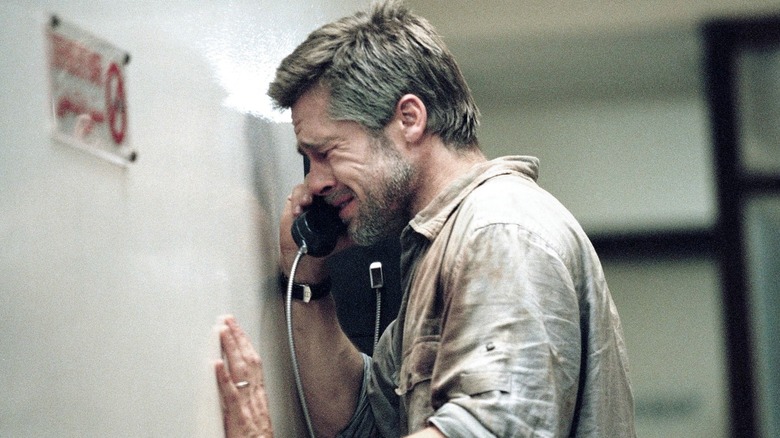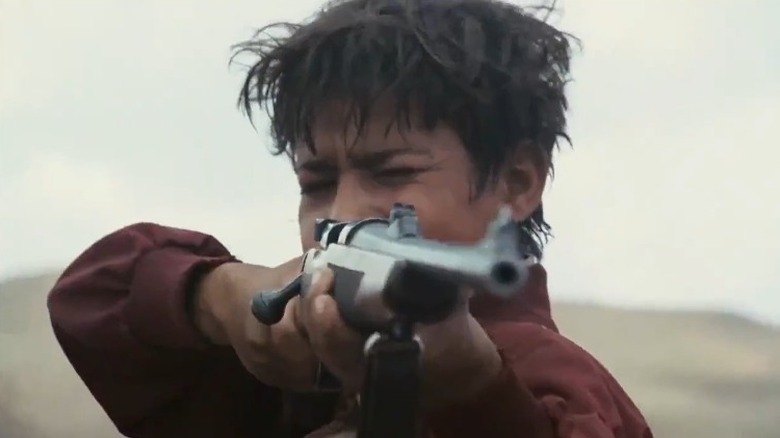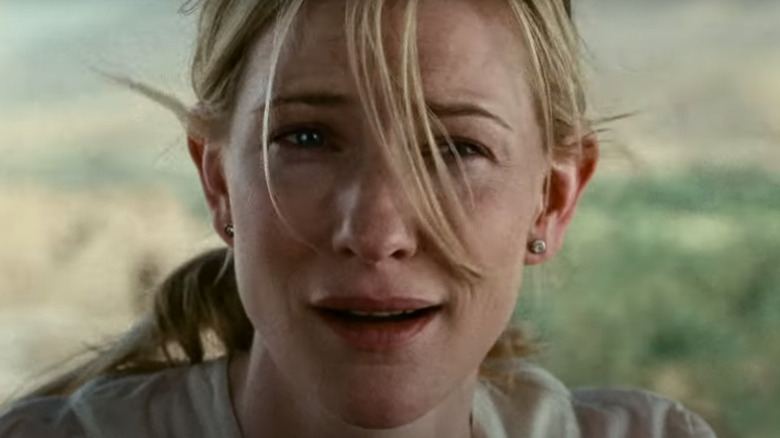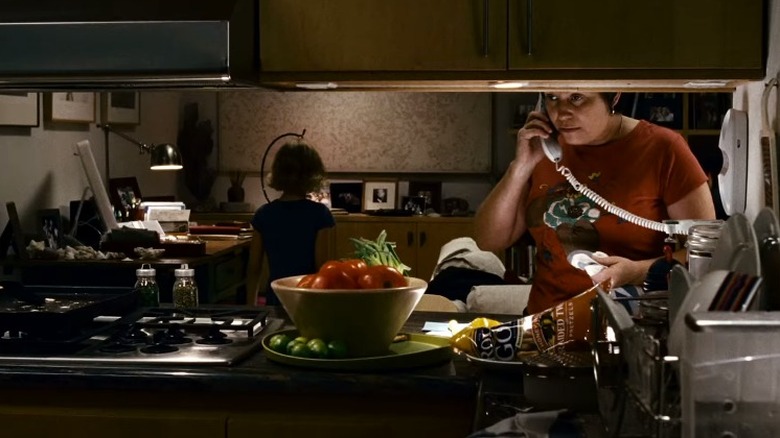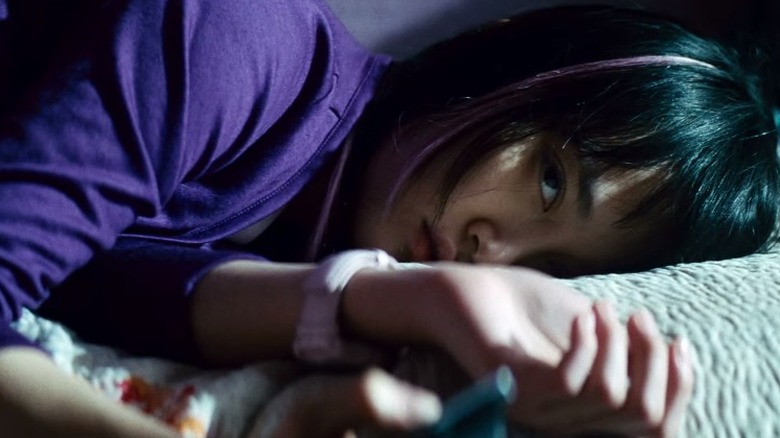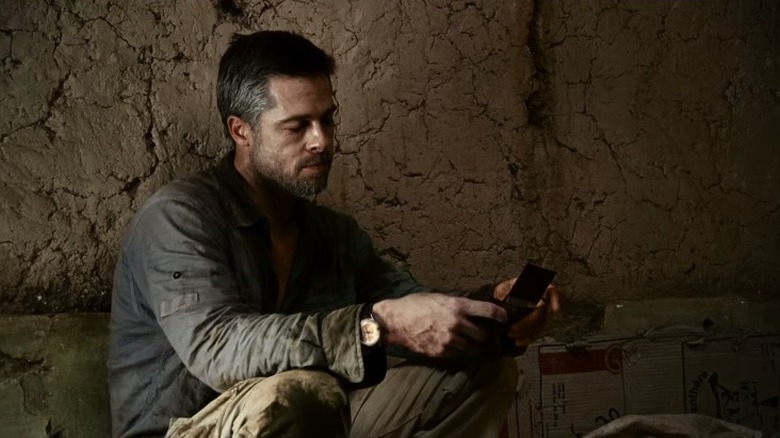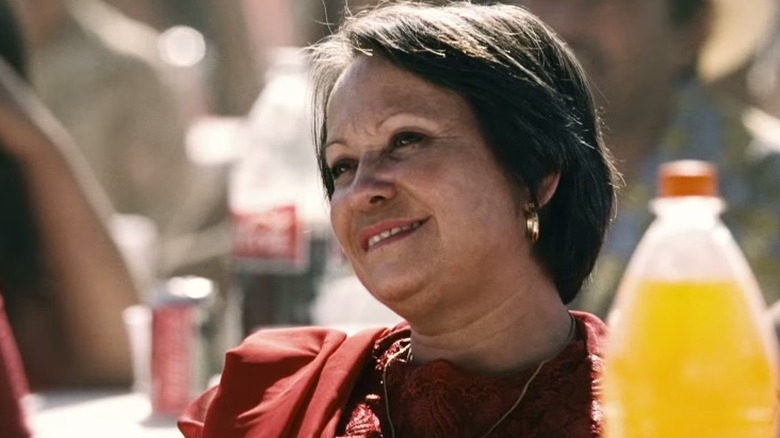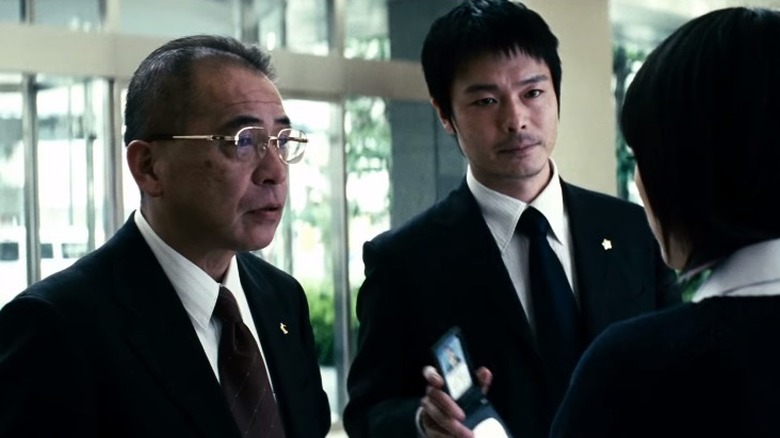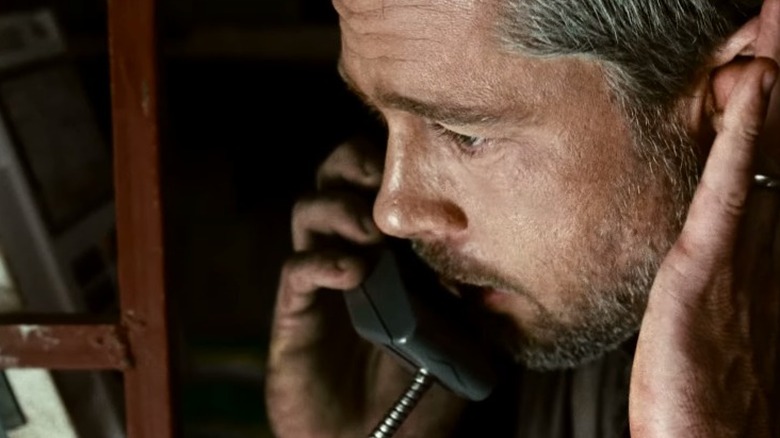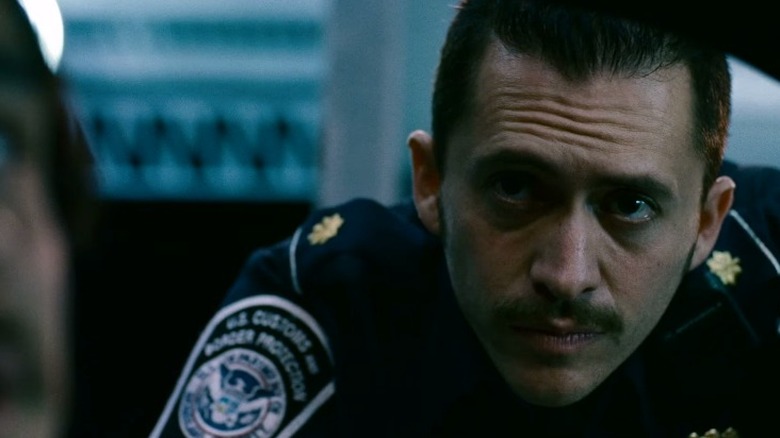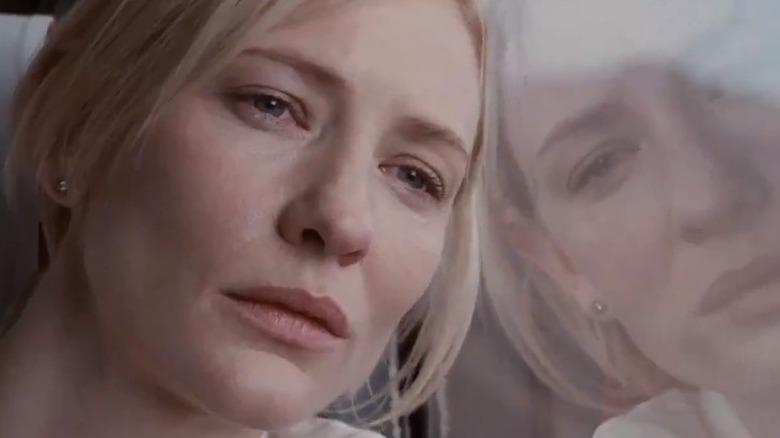The Ending Of Babel Explained
"Babel" is a film about three interconnected storylines taking place on three separate continents. The idea for the film came to the writer, Guillermo Arriaga when he considered presenting a narrative that takes place in 24 hours; the fleshed-out version of that idea was exploring what an individual's most definitive 24 hours would look like.
The film follows three primary storylines: Chieko Wataya from Japan, a teenager with a hearing disability; Susan and Richard Jones, a couple on a tour of the remote areas of Morocco; and Amelia Hernández, the nanny with whom the Joneses have left their two children. Throughout the film, their lives keep colliding as they go about their daily affairs.
The film's conclusion finally clarifies the chain of events that unites all of these characters. Long before the events of the film, Yasujiro Wataya went on a hunting trip in Morocco and left his firearm to his tour guide, Hassan Ibrahim, as a token of gratitude. When the film starts, Hassan, now a gun owner, subsequently sells the rifle to a neighbor, who gives it to his children to protect his goats against jackals while he is away; the children then shoot Susan Jones while playing with the gun. This forces the Joneses to extend their trip, and Richard asks Amelia to stay with the kids for a bit longer and miss her son's wedding in Mexico. Amelia opts to bring the kids across the border, which results in her tragic encounter with the border authorities.
What you need to remember about the plot of Babel
The first story in the film is Hassan's. It starts when Hassan approaches his neighbor, Abdullah, and they haggle over the price of his firearm. They eventually agree on a price that works for both of them. Abdullah's primary source of income is selling his goats, but he has to be at the market to sell them, and while he's gone, jackals prey on his goats. So, he is interested in buying the gun so that his boys can shoot the jackals and protect his property. The catch is that he can tell his sons won't be responsible with the weapon relatively early on.
This presents Abdullah with a dilemma: He must choose between leaving his goats defenseless and arming his irresponsible children. Such dilemmas then become a recurring motif that pervades the entire film. Richard must decide whether to abandon his family a second time or bring his wife along on his risky trip. Amelia must also choose between being a good nanny and a good mother. Whatever they choose, they all lose.
Chieko Wataya — who cannot speak or hear — highlights how tough it is for a person to live when others don't understand their communication style. Her story begins with her constant frustration, which drives her to behave erratically. Slowly, however, she starts finding her way thanks to the empathy of others.
How and why did Richard and Susan Jones end up in Morocco?
The audience first encounters the Joneses in an open-air restaurant in a rural region of Morocco. Susan questions Richard about why he brought them there, but all he says is that they're just there to be alone.
However, there is much more to it than that — the audience learns earlier in the film from Amelia's perspective that the Joneses lost their infant son Sam. And it is clear from this conversation that Richard's reaction to this was to walk away from their family, and Susan is experiencing difficulty forgiving him.
Richard is using this trip to show his commitment to his family, particularly his wife. He's merely attempting to convince her that he would never give up on their relationship again. That is put to the test almost immediately when Susan is shot in the middle of the desert and Richard stays by her side as they attempt to get to the nearest hospital. Richard now has a chance to face his fears head-on. When the situation is this terrible, simply being there sometimes feels like the most difficult thing for anyone to do. And although Brad Pitt and Cate Blanchett's roles in their next collaboration, "The Curious Case of Benjamin Button" from David Fincher are more substantial, their performances in "Babel" are nevertheless spectacular.
Amelia's reasons for crossing the border to Mexico
The timeline in Amelia's account is slightly confusing. When the audience begins following her part of the plot, they may initially believe it is taking place on the same day that Susan is shot. But, in the end, the audience sees Richard only calls her after Susan is taken to the hospital, thus it's plausible to believe that Richard's first phone call to Amelia takes place an entire day after Susan is shot.
Richard has been through a traumatic ordeal and understandably cannot return on time as he waits for Susan's recovery. But matters get worse when, for whatever reason, the person who was to take over for Amelia on the day of her son's wedding does not arrive on time, and Richard asks her to miss the wedding and take care of his children. So, Amelia decides to take the kids to Tijuana for the wedding instead.
For a brief moment, the wedding appears to be all fun and games, and the children appear to be genuinely interested in learning about another culture. However, when it comes time to return to the United States, Amelia and her nephew encounter difficulties with aggressive border agents. As a result, her nephew gets them into a car chase, forcing him to abandon Amelia and the kids in the desert alone.
The reason Chieko is so awkward
Chieko Wataya is a Japanese teen. She recently lost her mother, whom she considers to be the only person who ever listened to her. And since she can only communicate via sign language, her options for connection are even more limited. The audience first meets Chieko playing volleyball with her school team, and her frustration with how the game is being officiated causes her to get into an ugly confrontation with the umpire, which results in her getting kicked out of the game.
After the game, her father, Yasujiro Wataya, drives her to lunch and reminds her that they had lunch plans together. However, Chieko is still hostile, telling Yasujiro that she told him she was going out to lunch with her friends. Chieko accuses Yasujiro of never paying attention to her, bitterly adding that her mother was the only person who did.
The motif of people not paying attention to her keeps recurring. It particularly stings when boys who are interested in her withdraw when they find she is non-verbal. Even after she finds she can attract boys more if she utilizes her body in a more overtly sexual manner, she quickly recognizes that strategy isn't ideal for forming long-term relationships — the boy she attracts using only her sexuality makes a move on her friend as soon as she turns her back. Chieko believes that no one genuinely understands her, so she acts out.
The theme of government prioritizing bureaucracy over citizens
One of the film's key critiques is aimed at the concept of government. Typically, a film that depicts several parts of the world is from the perspective of one culture, and for Hollywood films, it is usually Western culture. As a result, the criticism of governments in these films focuses primarily on one particular government and its well-known misgivings in the areas over which they have influence.
With "Babel" Alejandro González Iñárritu chooses to broaden his criticism to reach a broader audience, but the message is never watered down. In this story, governments frequently prioritize bureaucracy over residents' well-being. This bureaucracy serves to improve a country's social standing among other nations, yet this social standing never actually benefits any individual people.
Each story in "Babel" is used to demonstrate this. In Amelia's story, it is evident that the border patrol's overly aggressive stance puts American children's lives in danger. In Morocco, the police are so concerned about responding quickly and sternly to Susan's tragedy that they end up killing a child without conducting a thorough investigation. The American Embassy is similarly adamant about labeling the shooting a terrorist attack, to the extent of delaying aid to the Joneses. And in Japan, cops endlessly harass a bereaved family all in their attempt to be thorough with their investigation.
The film broke down barriers for world cinema
There used to be a solid, insurmountable barrier between what was considered a Hollywood film and what was considered world cinema. This barrier is unaffected by the location of a film, the language spoken, or even the subject matter. It all depends on whose point of view the story is told from. Dr. Deborah Shaw, a professor of film and screen studies at the University of Portsmouth, wrote a thesis on "Babel and the Hollywood Gaze," in which she noted how the term "world cinema" is commonly used to refer to films that address globalization issues and, at best, are just used to add prestige to film festivals and award ceremonies.
However, Dr. Shaw emphasized in her thesis on "Babel" that the film succeeded in producing a hybrid of the two factions of cinema. It accomplished this by incorporating Hollywood stars as the leads who are on vacation in a foreign third-world country to escape their problems, but instead of "finding themselves," they become embroiled in that country's socio-political issues.
Despite the film's contentious use of non-English languages, it was a huge success on the awards circuit and at the box office. The success of this film catapulted Alejandro González Iñárritu to the ranks of today's most recognized filmmakers. Furthermore, its mixing of the two factions of cinema also opened the door for widespread recognition of films such as "Roma" and "Parasite."
What happens in Babel's ending
Amelia and the two children wake up in the middle of the desert and start walking together. They are surrounded by nothing. There is no food or water. Amelia then instructs the children to wait in the shade of a scrub while she seeks assistance. When she thinks all hope is lost, she comes across a border patrol agent. But when she brings the border patrol back to the area where she thinks the kids are waiting, they are unable to locate them at first. When they find them, Amelia takes full responsibility and gets deported.
Richard and Susan are finally evacuated to Casablanca after Moroccan authorities solve the crime of Susan's shooting by capturing the culprit. In Casablanca, Richard asks the doctor whether Susan will be okay, and the doctor replies they're still not sure if she'll be able to keep her arm; all Richard wants to know is if she'll survive, and when he's informed that she will, he breathes a sigh of relief. He then phones his children and participates in a mundane chat with his son, who has no idea what just happened.
In Japan, the detective finally gains access to the Wataya residence, where he discloses that he's not interested in further investigating Chieko's mother's death; he's there to learn more about Yasujiro's rifle. He discovers that Yasujiro did indeed give his gun to Hassan. But then Chieko tries to seduce the detective, and despite declining her advances, he consoles her.
Analysis
The title of the film is derived from the Biblical narrative known colloquially as the "Tower of Babel." In the myth, Noah's grandson ordered the construction of a tower that would reach so high that it would meet the sky. God considered this arrogance and muddled their speech to the point that they couldn't understand each other and therefore were unable to finish their project.
The film is about several topics, the most important of which is humanity's incapacity to understand one another. Amelia tries and fails to persuade Richard that she has already missed so much of her son's life and cannot afford to miss his wedding. And her story about being forced to leave the kids in the desert in search of aid matches what she has to do to her family when she traveled to the United States in pursuit of better opportunities. She was doomed if she did and doomed if she didn't.
Susan, on the other hand, tries to convey to Richard that she is grieving and needs him to be there since she cannot get through this period alone. Chieko's loss also makes her feel alienated, but unlike Susan's, her problem isn't that she can't deal with her grief on her own; it's that now that her mother is gone, no one pays attention to her. The film uses a broad canvas to simply encourage the audience to never stop listening to one another.
An alternative analysis of the ending
The butterfly effect is another key element in the film. Throughout the film, there is an undercurrent that suggests that everything one does, no matter how minor or personal, has a consequence on those around you. Even if you don't know them or they reside halfway around the world.
Many horrific things happen in "Babel," but no one is truly a villain. Aside from the numerous misunderstandings throughout the film, it is quite straightforward for the audience to understand why each character makes the decisions they do. The film then goes on to illustrate how each significant character's choice influences others and how they're all connected.
Alejandro G. Iñárritu was reexamining his filmography in an interview with the LA Times, and he expressed it best when he remarked, "The exercise in 'Babel' was bigger. How do four people — who have never seen each other in their lives, who are never on the screen together, who are geographically on different sides of the planet — affect each other's lives."
This interpretation of the film's ending is consistent with the other films in the director's "death trilogy," as all three films contain a connecting thread of similar elements that demonstrate how a single incident affects strangers. This structure, according to the director, is influenced by the Latin American literature he read as a child, particularly the works of Julio Cortázar and Carlos Fuentes.
What Cate Blanchett has to say about the ending
Cate Blanchett is one of the world's most talented actors. And the fact that she signed up for "Babel," shows how much she admires the director and what he's trying to do with his vision. She has stated on multiple occasions that the director is usually what draws her to projects.
When she was promoting her 2006 films — "Babel," "The Good German," and "Notes on a Scandal" – she stopped by Charlie Rose and told him that what kills her about the ending of "Babel" is how Alejandro González Iñárritu dedicated the film to his wife and two children. One would think that with a film with such a big scope as "Babel," the director would struggle to make it feel intimate. But it seems that for Iñárritu, that's how he manages to create a film like this and connect with audiences on an emotional level.
